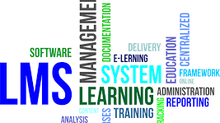Are you Working with Professionals?
- Dylan Hedges
- Dec 8, 2017
- 3 min read

This past week I facilitated a project management program for a group of 10 professionals from a wide variety of organisations. The focus of the course was applied project management skills for professional planners, however some of the discussion in the morning was focused on their (the participants) experiences in previous classes; specifically, those classes that did not do a thorough job in covering the stated objectives of the course due to what they perceived as poor facilitation technique by the facilitator, or poor course design.
On the above topic, last week I provided a list as to what I felt are the core skills required by a professional facilitator. This week I would like to expand on two of these skills, providing a bit more detail for each Please note, the facilitators skills list has been provided below as a reference, copied at the bottom of this page.
A professional Facilitator…
Ensures an inclusive environment is maintained always.
Creating and maintaining an inclusive environment of trust and respect is a MUST for any class, regardless of who is in attendance, and. requires an awareness of how your participants are reacting to both the topics under discussion and the opinions and reactions of others. Most participants in a course will specifically state their discomfort, hurt feelings, or even anger. On the contrary, often these participants will silently withdraw from the discussion and often from the group. Sensing how people are feeling and understanding how to respond to a situation, as well as perceiving and responding to the group’s dynamic is one of the most, if not the most, important skill for a professional facilitator to have.
Possesses exceptional communication skills including the ability to listen as well as they speak.
Effective (Active) listening requires both deliberate efforts and a keen mind. Facilitators who excel at listening appreciate the flow of new ideas and information and enjoy hearing the experiences and points articulated by others. By using active listening, the facilitator can sense the feelings of his/her participants listening to both the explicit meaning of words and to their tone and meaning. Active listening not only means focusing fully on the speaker but also actively showing verbal and non-verbal signs of listening. Therefore, another way to demonstrate active listening is to sum up or respond directly to what a speaker said to ensure the speaker’s meaning was correctly understood by the group.
Next week I will continue this dissension, focussing on two additional skills that I feel are a very important part of any professional facilitator.
To learn more about finding the right people for your training and eLearning needs, please visit us on our website at http://www.pathwaystrainingandelearning.ca/
A Professional Facilitator...
Is prepared for the course and has planned for all potential roadblocks
Never loses sight as to what is best for he student/participant
Knows who is in the room and acts accordingly
Ensures an inclusive environment is maintained always
Gives clear instructions and sets realistic guidelines
Possesses exceptional communication skills including the ability to listen as well as they speak.
Can manage and follow the course agenda regardless of the occasional “hiccup”
A master at reading body language and gauging the “energy level” of their participants
Is very adaptable and able to change course at a moment’s notice


































Comments